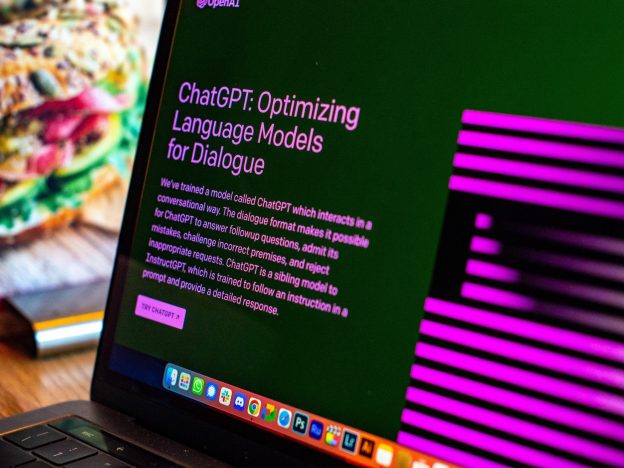Gianna Maria Balli – In November 2022, artificial intelligence company, OpenAI, launched its latest language processing AI Model called Chat Generative Pretrained Transformer (“Chat GPT”). The AI chatbot has taken the internet by storm. After garnering over one million users within one week of its release, the popularity of ChatGPT is amplifying concerns across many industries regarding the potential implications of advanced AI in the workplace.
Chat GPT generates quick and mostly accurate humanlike responses, text summaries, translations, content creation and more for a myriad of topics. However, ChatGPT does not actually know anything, nor is it capable of conducting research—it is incapable of thinking the way that humans do. While its transformer algorithm is designed to mimic the human brain’s language processing function, ChatGPT’s output is the result of machine learning algorithms, deep learning techniques, and attention mechanisms. Put simply, ChatGPT is pretrained to parse a massive compilation of text data and predict the next word in each sequence. As a result, it is able to understand the patterns of natural language and ultimately provide humanlike responses.
ChatGPT’s technology is distinguishable from search engines like Google because it has the unique ability to produce conversational responses immediately when prompted, rather than providing the user with several links to choose from. For example, when asked for simple information like, “how can I keep my Fiddle Leaf Fern plant alive?”, ChatGPT provides a detailed list of instructions within seconds. Proving its ability to generate quality answers, Chat GPT recently passed law exams in four courses at the University of Minnesota with a C+ average, a U.S. Medical Licensing exam, and a Wharton MBA exam with a B-.
While ChatGPT’s ability to explain complicated topics and complete writing tasks has garnered user confidence in the chatbot’s accuracy, OpenAI co-founder Sam Altman has admitted that his creation is not infallible. ChatGPT is capable of providing users with incorrect facts disguised as well-articulated answers, and Altman warns that ChatGPT is “incredibly limited, but good enough at some things to create a misleading impression of greatness.” Further, he states that it would be a mistake to rely on the chatbot for anything “important” at this stage in its development. However, these issues will likely be solved by OpenAI’s newest model, ChatGPT 4 (“GPT4”), which was released less than two weeks ago. GPT4 has access to over 100 trillion parameters, a massive expansion from the previous model’s learning capabilities, which access up to 175 billion parameters. Further, Microsoft confirmed its partnership with OpenAI and an alleged additional investment of $10 billion into the startup, bringing its total valuation to $29 billion.
ChatGPT’s rapidly evolving technology in conjunction with Microsoft’s desire to be at the forefront of generative AI in the near future warrants consideration of generative AI’s impact on the legal industry. Lawyers have already begun using AI to help draft and review contracts, aid in the discovery process, and conduct legal research. But will newer models of ChatGPT be capable of providing legal services for routine issues? A 2022 report by the Legal Services Corporation addressed low-income Americans’ lack of access to legal representation for civil legal issues such as “correcting a social security payment,” and turned to ChatGPT for accurate and affordable solutions. Despite OpenAI’s warning that ChatGPT should not be relied upon for advice and the practical observation that generative AI does not possess either the level of understanding or judgment of a lawyer, the industry should embrace this opportunity to maximize efficiency with AI tools like ChatGPT. Big tech corporation IBM notes that humans are the common thread among increasing levels of automation enabled by AI, and that “whether it’s driving our vehicles, designing our drugs…AI’s long-term success is contingent upon our acknowledgment that people are critical in its design, operation, and use.”
While it is impossible to predict the magnitude of AI’s effect on the legal sector, its current and future application to the industry is undeniable. In line with this perspective, law firms are increasingly embracing AI in their daily operations in order to stay abreast of evolving AI technologies and incorporating tools such as GPT4 to draft contracts and review documents more quickly. While legal professionals should avoid using GPT4 or other AI tools not specifically created for legal use to craft actual legal documents until the models evolve, utilizing these technologies to automate more mundane tasks can help law firms reduce the cost of legal services and ultimately make firms more competitive in the marketplace.


